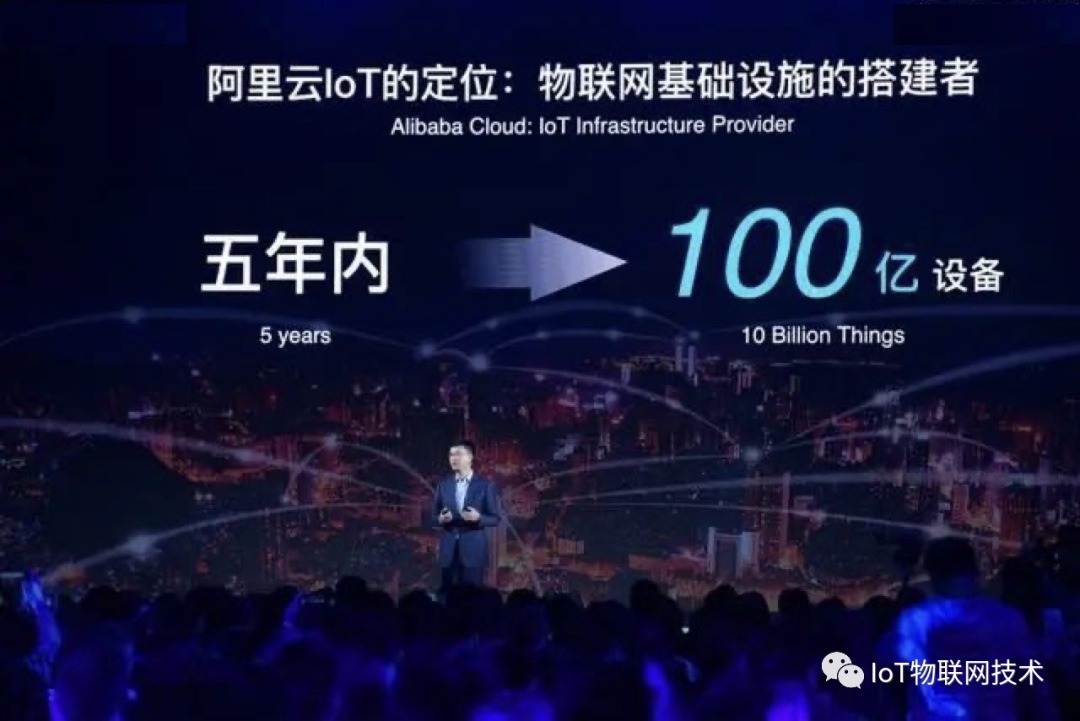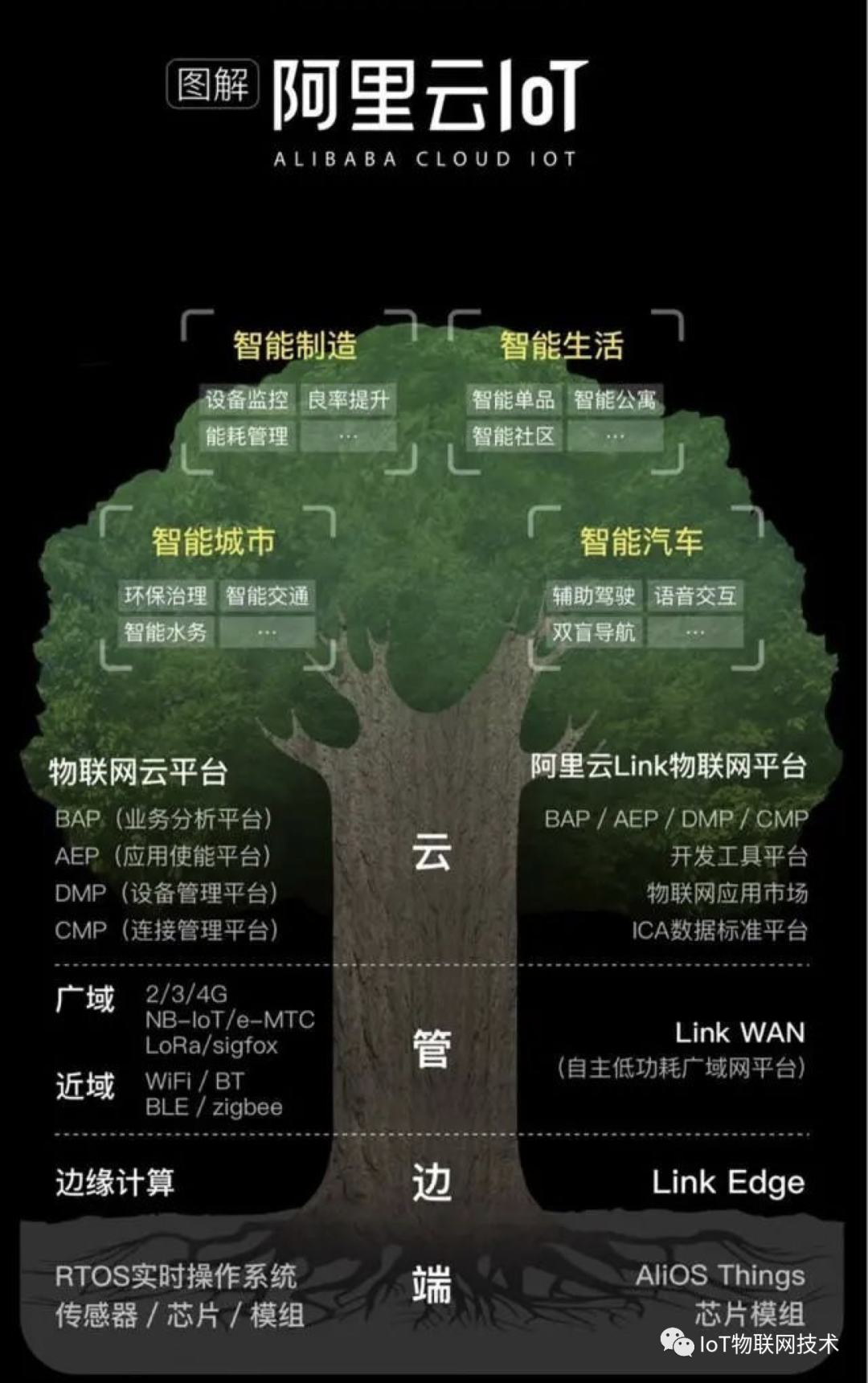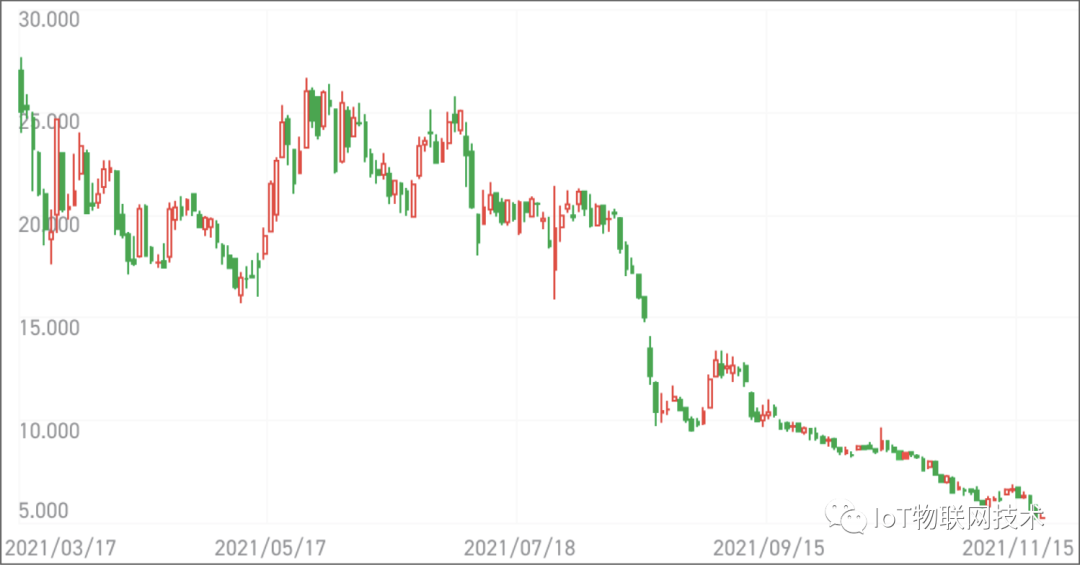01
The original intention of the Internet of Things platform
At the 2018 Yunqi Conference Shenzhen Summit, Alibaba announced that IoT has become the fifth main track after e-commerce, finance, logistics, and cloud computing .

Alibaba Cloud entered the field of IoT with the IoT platform as its core product, and proposed the ambitious goal of connecting 10 billion devices in the next five years , which has aroused great repercussions in the industry. Huawei Cloud, Tencent Cloud, Tianyi Cloud, and Mobile OneNet have followed up one after another, increasing the construction of IoT infrastructure.
Each cloud computing company builds IoT infrastructure at various levels from " cloud-pipe-edge-end ". The product matrix includes IoT operating systems, IoT IoT platforms, edge computing platforms, IoT application development platforms, IoT security services, IoT market , etc.

Four years later, as Sun Quan was transferred from Alibaba Cloud, Captain Ku Wei, the chief helmsman of the IoT business unit, and Ding Xianfeng, the chief scientist, left their posts one after another. The connection of 10 billion devices has come to naught. Where will the much-anticipated IoT ship go? No one knows.
On the other hand, Tuya Smart bears the aura of " the world's first IoT cloud platform ". After its listing in March 2021, it once reached 15.6 billion U.S. dollars, but now its market value has dropped by 80%, which makes Internet of Things practitioners sigh and countless Retail investors beat their chests and stamped their feet.

As for Huawei Cloud, which built HiLink, and Tencent Lianlian, which adopted a follow-up strategy, they have not made breakthroughs in the industry, breaking the embarrassing situation of losing money and making money. On the contrary, companies such as Xiaomi IoT and Tree Root Cloud , which are deeply involved in the vertical field, have continuously established their own ecological moats.
02
Participants in IoT Platforms
Looking back on the development of the Internet of Things industry in the past few years, there are five main types of players on the Internet of Things platform:
Cloud Computing Service Provider
As the growth of the mobile Internet slows down, cloud computing vendors have begun to devote themselves to the industrial Internet of Things track, hoping to bring their technological , commercial, and ecological advantages accumulated from the Internet to the Internet of Things field . We see that major manufacturers such as AWS, Microsoft, and Alibaba Cloud mainly provide underlying operating systems, device connection management platforms, and application enabling platforms.
Telecom operators
In the wave of mobile Internet, the three major operators who have been reduced to the embarrassing role of "pipelineization" have seized the opportunity of NB-IoT and are thriving in the field of water, electricity and coal meter data collection. Telecom CTWing and China Mobile's OneNet IoT platform mostly focus on connection management, lacking the accumulation of data storage and big data analysis capabilities, and lack of succession.
system integrator
In the face of the Internet of Things wave of equipment, system integrators who have long been rooted in vertical industries and have rich industry knowledge take the upper-level business application development platform as the entry point, and accumulate industry experience to form a digital model by building a vertical business platform Or tools to provide customers with better services and improve their own service processes and efficiency.
Internet of Things Startups
Start-up platform companies in the IoT field mostly export in the form of SaaS solutions, rather than selling IoT platforms separately. With its unique advantages, it has quickly occupied the subdivided areas that are difficult for cloud vendors' IoT platforms to reach, and there is a tendency for ants to eat elephants.
Traditional enterprises in vertical fields
Tree Root Cloud is a successful example of traditional enterprises in the vertical field. It mainly uses its own understanding and experience of the industry to build a vertical platform and use data to empower similar enterprises in the vertical industry.
03
Is the Internet of Things platform not fragrant?
Today, the general IoT platform built by major cloud vendors is no longer popular, and it is not eliminated as a mature product at the end of its life cycle. In fact, it has not been able to enter the customer's project. The customer often directly adopts the vertical IoT platform in the subdivision field, or the self-built MQTT connection management platform based on open source products, as part of the overall solution to support the IoT project. stable operation.
The decision-making of the government and traditional enterprises tends to be rational
In the past few years, local governments and real estate, cultural and tourism companies lacked understanding of smart projects, and there were many cases of blind investment. People use it, put it on the shelf , and eventually become a performance project or a face project , with an extremely low rate of return.
Today, local governments and corporate decision makers are gradually realizing that digital transformation is not about pursuing the so-called " high-end " superficial effort, but about facing existing equipment or old systems and many historical burdens, which need to be gradually replaced and implemented iteratively. Rationally choose a vertical industry IoT platform that can solve practical problems.
The advantages of the vertical platform are emerging
In the face of the fragmented Internet of Things field, BAT, a major Internet company, is not acclimatized. Vertical enterprises are well aware of industry pain points, industry know-how, rooted in the front line of customers, and based on production and operation data to enhance customer value, gradually won the trust of customers, and contributed to the industry. Customers provide unique value services.
04
IoT platforms are still irreplaceable
Recently, "integrated" has gradually become a high-frequency word in the press conferences of various cloud vendors. The core value of the IoT platform is to help enterprises reduce the inefficiency of repeated wheel creation , so that enterprises can focus on core business development.
The IoT platform launched by cloud vendors is still positioned to create a rich and comprehensive underlying infrastructure of the IoT, hoping to embrace more suitable industry chain partners. At the same time, the SaaS ecosystem is also becoming a unified direction for cloud computing vendors.
Finally, all IoT practitioners are welcome to leave a message and express your views.
Past recommendation
1. Is HarmonyOS an Android shell?
2. Performance comparison of the four major domestic IoT platforms in 2021
3. Domestic MCU Industry Development Research Report
4. Ranking of Top Ten 4G Communication Module Enterprises in 2021
5. iResearch 2021 China IoT Platform Research
6. How to locate IoT devices without GPS module?
